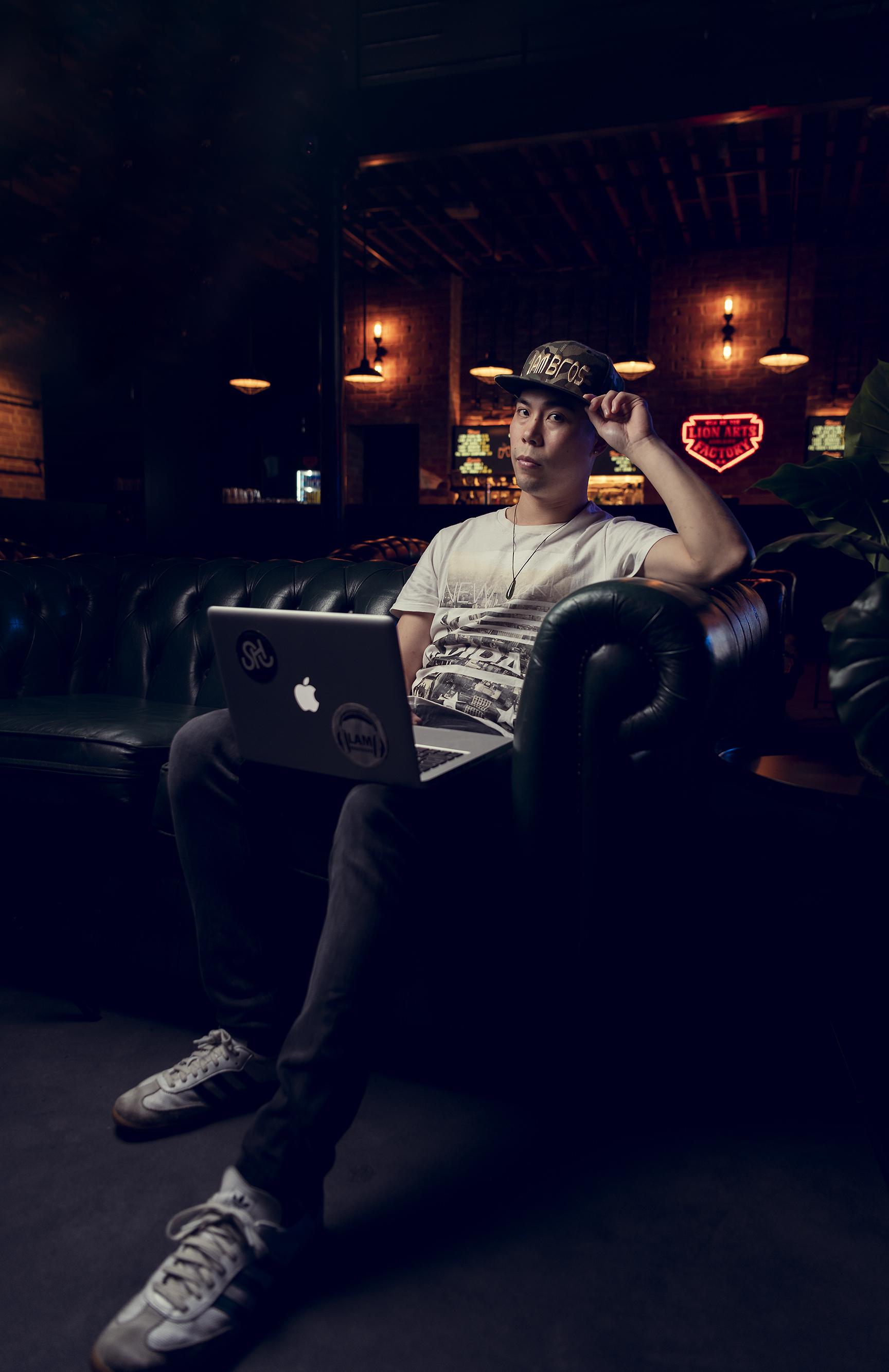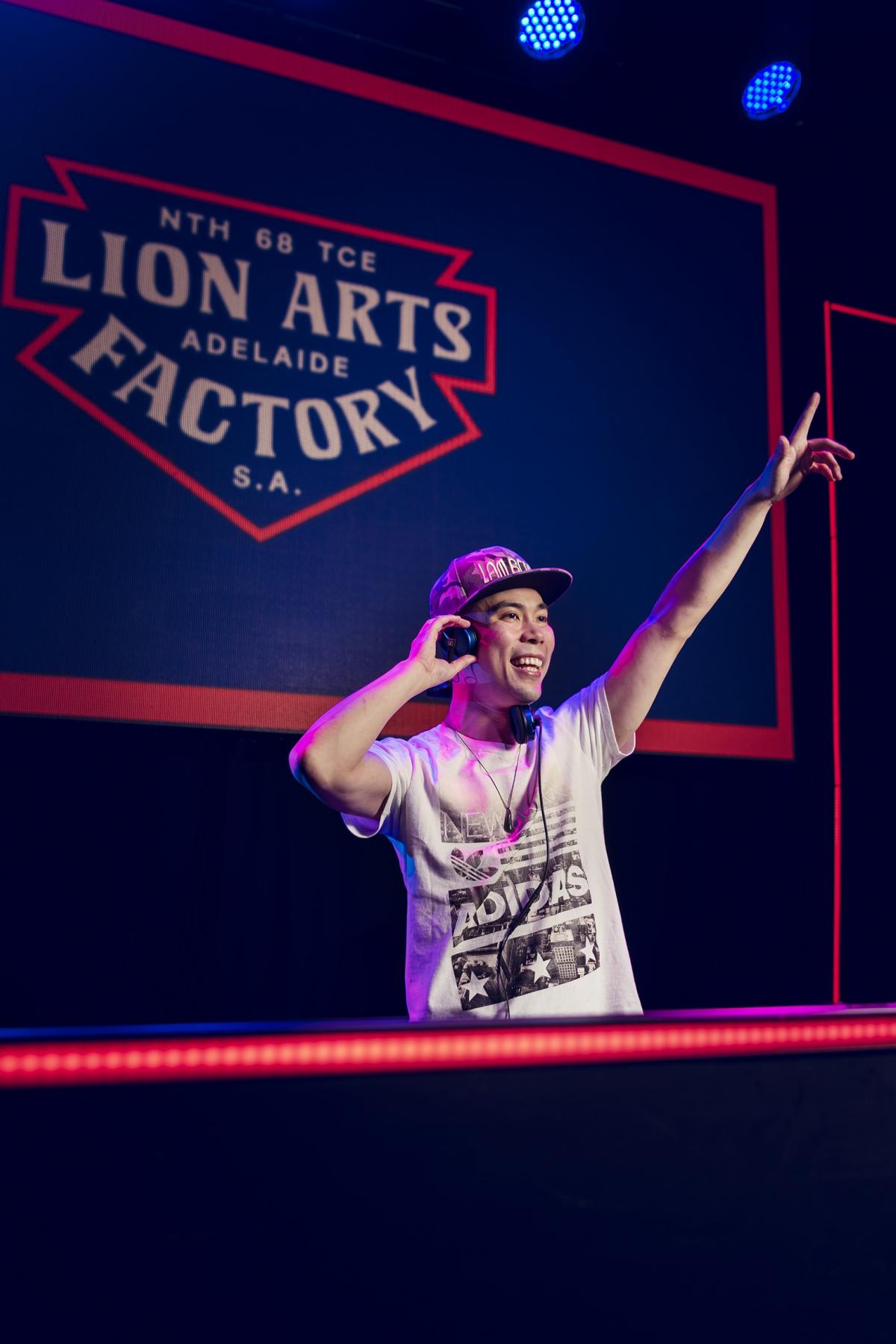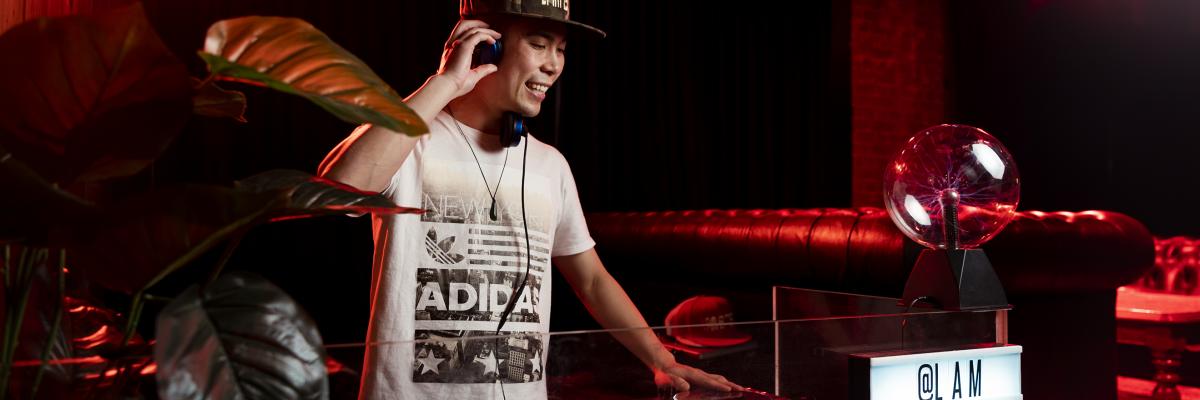Connected Conversations | David Lam
For part-time doctor, part-time educator, part-time musician, and part-time DJ, Dr David Lam, medicine and music have always come hand-in-hand. Among his many accolades, David holds the titles of Adelaide Medical School Best Rural Teacher, RACGP National GP of the Year, and InDaily 40 Under 40 of SA’s Top Entrepreneurs and Innovators. On weekends, you can find David mentoring young people in Port Augusta, cooking up a feast with Streaky Bay abalone, or jamming at the footy with his siblings at Adelaide Oval.

Please tell us a little bit about yourself.
My name is David Lam and I am a rural doctor, university lecturer, guitarist, and DJ. I work alternate weeks as the solo doctor in Streaky Bay on the Eyre Peninsula in South Australia, located about 700km west of Adelaide. This is a tough job as it involves being on 24-hour call for both the general practice and the hospital. It is even tougher because the town is so far away from the nearest intensive care or paediatric unit. Anything can come through the door at any time, including people having heart attacks, strokes, or kids with life-threatening infections or asthma attacks. It is nonetheless rewarding as I have the privilege of making sure the people in the town get access to the best quality health care, just like anyone else living in metropolitan Australia.
When I am not on-call in Streaky Bay, I am the doctor at Port Augusta Headspace, where I help young people with their mental health and a Senior Lecturer at the University of Adelaide. Since 2018, I have been the Rural Medicine Coordinator at the Adelaide Rural Clinical School (ARCS), teaching all 48 of our medical students at the University of Adelaide who are based in country towns across the state. I now work with Adelaide Health Simulation. Our team delivers high fidelity health simulation nationally to medical students, nursing students, and doctors from the Colleges of Emergency Medicine, General Practice, Obstetrics and Anaesthetics. For my work in regional Australia and education, I have been awarded the Adelaide Medical School Derek Frewin Citation for Clinical Teaching and Best Rural Teacher Award, the 2019 RACGP National GP of the Year Award and the 2020 InDaily 40 Under 40 Top South Australian Entrepreneurs and Innovators Award.
I first started teaching with the Adelaide Medical School in 2012 as part of my final year medical education elective and I fell in love with it! The hardest thing about being a doctor is that you are not just learning scientific facts in a book. Being a good doctor means knowing how to explain these facts to help patients make practical decisions about their health. This relies on lots of real-life experience dealing with patients. I became a medical educator so that I could ‘go back in time’ and warn medical students and junior doctors about the mistakes I’ve made in my career and to be able to summarise for them, in a sentence or two, medical concepts that may have taken me several years and hundreds of cases to grasp.
I was the first ever ARCS student to undertake a placement in Port Lincoln, then return to Port Lincoln for specialist training and later stay in the town to serve the community after I became a specialist GP. As the University’s Rural Medicine Coordinator, it’s been my privilege to use my own journey, both the good and the bad, to mentor students just like me wanting to become rural health professionals. I also mentor Aboriginal medical students at the University of Adelaide because it will be phenomenal when we have more Aboriginal doctors returning to Country to serve their communities.
In between doctoring and teaching, I also play guitar with my band, ‘Spanish Harlem’ and DJ with my DJ crew, ‘Lam Bros Disc Jockeying’. Before the pandemic, we had just finished touring across Australia, playing sets in Adelaide, Melbourne, Sydney, Perth, Brisbane, and the Gold Coast. This has only been possible through teamwork. My brother and sister, Nathan and Esther, are also doctors and musicians so we all have an on-call roster for both doctoring and gigging, which makes it work.
What has been your journey to get where you are today?
All I wanted to do after high school was to study jazz at the Elder Conservatorium of Music. The jazz scene in Adelaide is, sadly, pretty small so I ended up instead studying law and commerce for a year, which I loved. Out of curiosity, I then gave medicine a go and the musician inside me loved the overlap of skills. Just like playing guitar, as a doctor, I get to keep my hands busy and dextrous. Practicing as a doctor is like performing on stage. It’s all about reading people and adapting your next move based on the patient or crowd response. The worst thing you can do as a doctor, or a DJ, is to disregard the partnership with your patient or audience and unilaterally do or play whatever you want. It’s been a long road since then, full of ups and downs. Regardless, it’s been a very rewarding one.

What do you love most about working at the University of Adelaide?
My favourite part of my job as a medical educator is when I see one of my students learn a skill from me and then practice and refine it to the point that they ultimately do it better than I do. Because the ratio of students to teachers on rural health rotations is far less than in the city, you can’t help but develop a personalised teaching relationship with each individual rural student and their learning style.
It is also great to look back together at how far a student has come over the course of just one rotation. Because there are so few of us rural doctors compared to those practicing in the city, I am in a lot of situations where I just can’t be in two places — often helping two seriously ill people at once. As a teacher, it is extremely rewarding getting to the point where I trust a student enough to let them go to the hospital and treat the patient while I sort out the patient in clinic or vice versa. When medical students start their rural rotation, I encourage them to get immersed in the experience, “You are part of this treating team, just like me or anyone else. So go act like it, be keen, and get involved!” A rural experience is truly fulfilling.
What inspired you to pursue a career in health?
My grandfather, Dr Teck Choon Lam, is my biggest inspiration. He studied medicine at the University of Adelaide just after World War II. He then used his skills to serve regional Australia as a Royal Flying Doctor in Wilcannia, NSW, and as a rural GP in Gympie, QLD, and Darwin, NT. He then became the Regional Medical Director of the Australian High Commission in South East Asia. He was the chief doctor in charge of health care of Vietnamese war refugees arriving in Australia. He also spoke eight languages and was also a excellent guitarist. Just like him, I’m inspired to make sure all people living in Australia receive the same best quality health care, regardless of gender, race, age, or postcode.
What opportunities do you see for the future?
I am always looking for new and better ways to engage students and junior doctors, particularly those in rural areas who are otherwise forced to travel hundreds of kilometres to access training. The COVID-19 pandemic and social restrictions also meant that we had to get creative with education. In the face of the cancellation of face-to-face teaching workshops, my brother, my sister and I released our own medical education podcast called ‘GP Lyf Hacks’. It consists of 20-minute episodes full of our best doctoring tips, accompanied by quick-reference pictorials on Facebook and Instagram. The target audience was initially our rural GPs in training here in SA, but the podcast has become popular since then with students and doctors in training at all levels across the country. We have started using the pocket video recorders we use to record our DJ sets to record our medical work too and are excited to be launching our GP Lyf Hacks YouTube channel in the near future.

What are the top three most defining moments of the past year for you?
- Being named as one of the InDaily 40 Under 40 top South Australian Innovators and Entrepreneurs and then meeting His Excellency Hon. Hieu Van Le, Australia’s first Asian-Australian state governor, at Government House with the other prize winners.
- Being awarded a Fellowship in Advanced Rural General Practice (FARGP) by the Royal Australian College of General Practitioners. This is a specialist accreditation held by only 700 of the 40,000 GPs across Australia and required extra training in skills that serve you well when you are the only doctor for hundreds of kilometres around.
- Playing guitar at Adelaide Oval with my band, ‘Spanish Harlem’, at the first Port Adelaide Football Club home game of the 2021 AFL season. It was great to finally have live sport, live music, and dancing back after such a difficult year in 2020.
What do you like to do in your spare time?
When I’m in the Eyre Peninsula, I blow off steam by boxing at the Williams Boxing Gym. When I’m Adelaide, I play rugby for the Adelaide University Rugby Football Club. I also love getting fresh produce and fresh Eyre Peninsula seafood and cooking up a feast. My latest seasonal creation is Streaky Bay abalone with real truffle butter.
How do you relax or switch off?
I switch off by being mindful. I forget about the rest of the world, the past, and the future, and focus on what I’m doing in the present. I’m my most mindful when I’m working the boxing bag or practising my rugby kicks. I’m also watching City on a Hill on Stan while waiting for The Witcher Season 2 to come out on Netflix.
Which destination is at the top of your list of places to go when international travel returns to normal and why?
Well, I’ve already bought my tickets to the 2023 Rugby World Cup in France so I’m hoping we’ll be able to travel overseas in time. While in Europe, I also want to go back to Granada in Spain, where my fiancée’s people are from. I want to continue the Flamenco guitar lessons I started pre-COVID with the gypsies of the caves of Sacromonte mountain.
